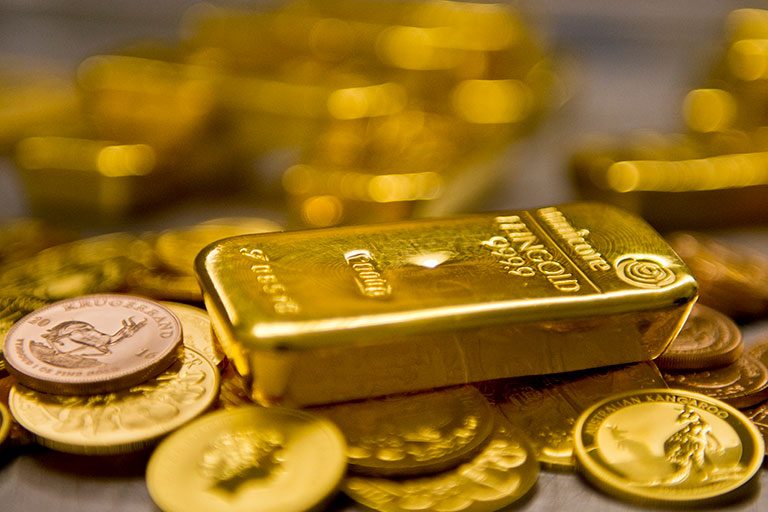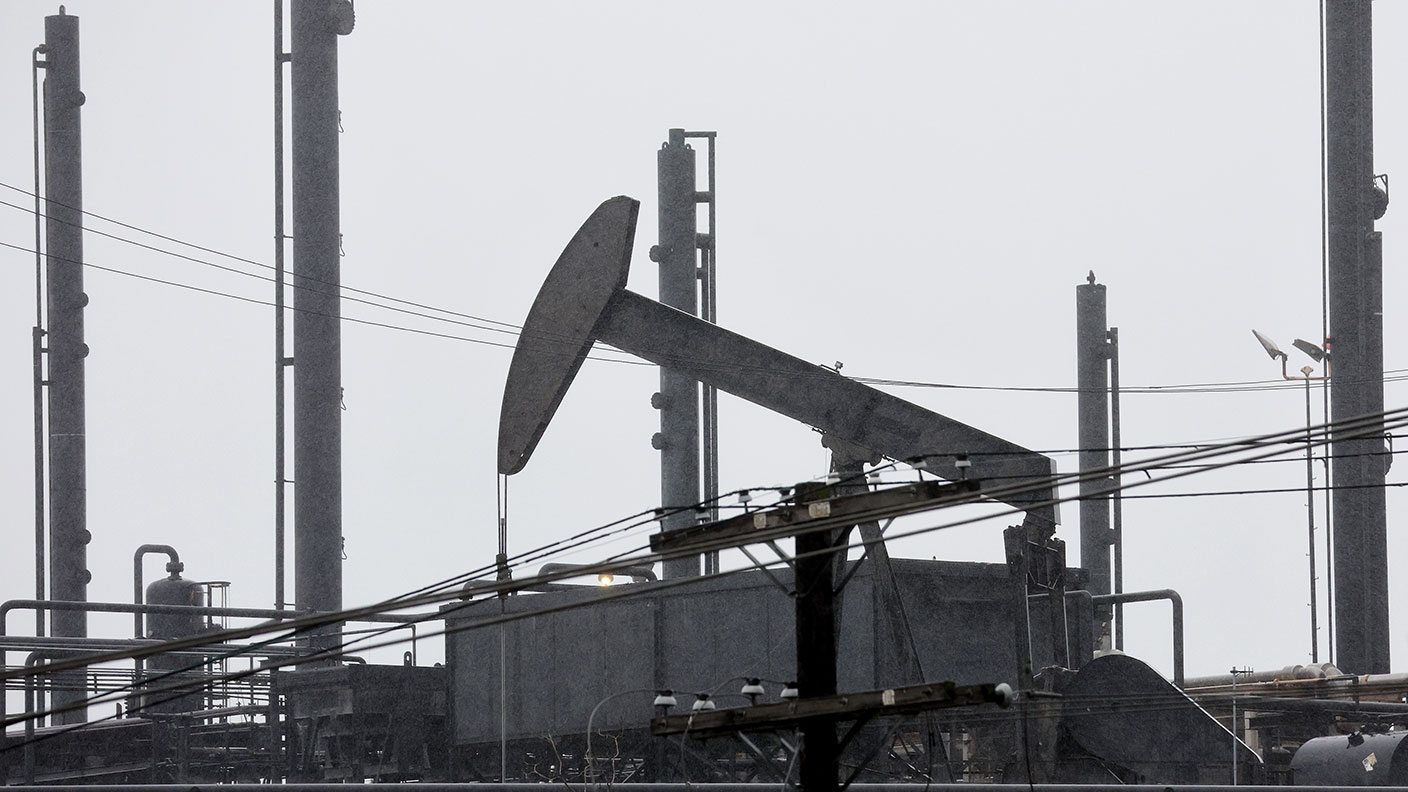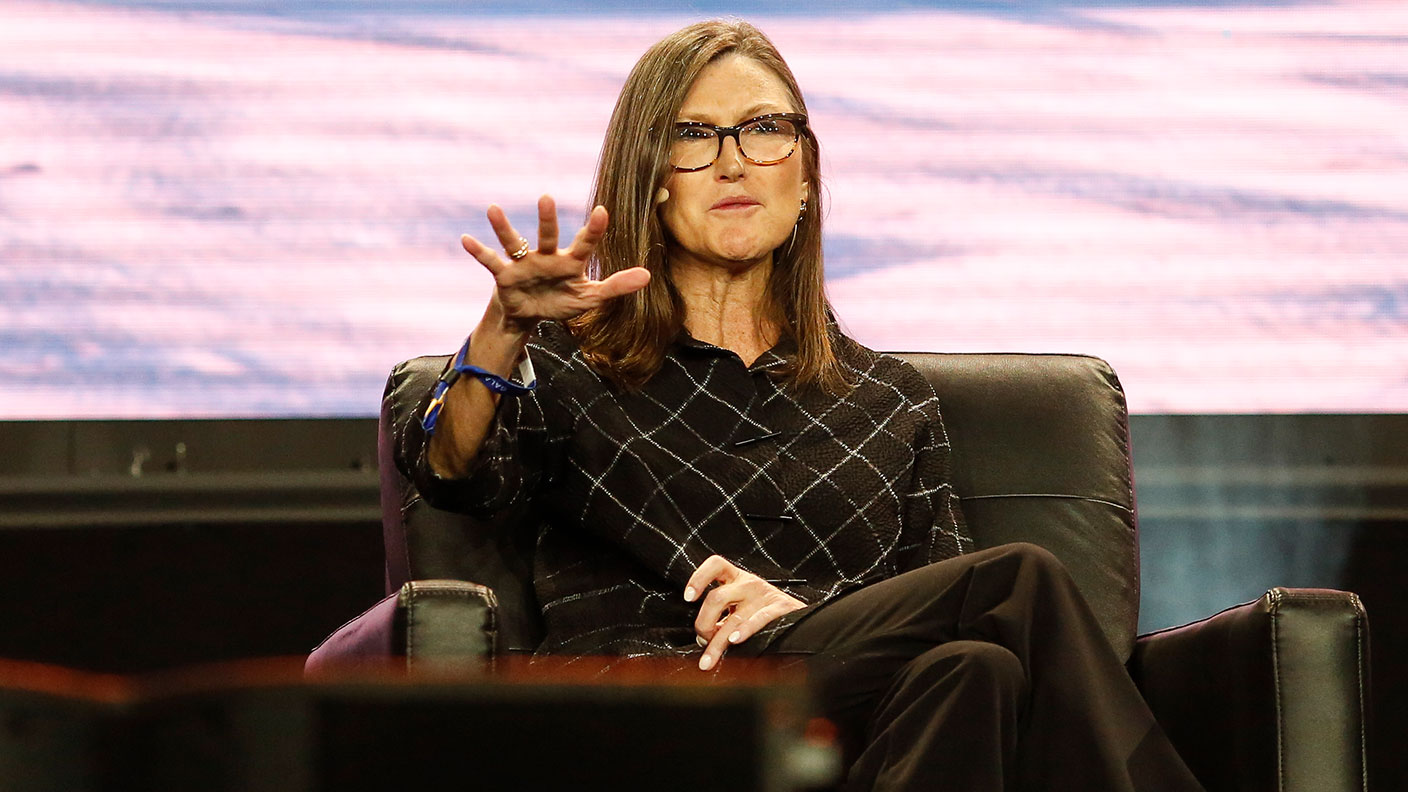Don’t panic about Iran – but don’t sell your gold either
Markets have reacted calmly to the tension between the US and Iran. But don’t get too complacent. It’s still a good idea to hold on to some gold as insurance.


Get the latest financial news, insights and expert analysis from our award-winning MoneyWeek team, to help you understand what really matters when it comes to your finances.
You are now subscribed
Your newsletter sign-up was successful
Want to add more newsletters?

Twice daily
MoneyWeek
Get the latest financial news, insights and expert analysis from our award-winning MoneyWeek team, to help you understand what really matters when it comes to your finances.

Four times a week
Look After My Bills
Sign up to our free money-saving newsletter, filled with the latest news and expert advice to help you find the best tips and deals for managing your bills. Start saving today!
Gold has had one of its more excitable runs since the start of the year. It surged so much in the wake of the Iran airstrikes that it even drew the attention of the broadsheet financial press. So naturally, the price was bound to tank shortly afterwards. Which is precisely what happened this morning. If you’re a gold investor, you might be fretting that gold’s high point for 2020 has already come and gone. I wouldn’t worry.
I have two thoughts about the market reaction to the conflict between the US and Iran. If I express them too quickly, it might sound like they contradict one another. So let me explain in detail.
The market is right not to panic about Iran, but it’s still complacent
My first thought is that markets are broadly right to avoid panicking too much. Tension in the Middle East is not new. Beyond the natural drama – which has been exaggerated by Donald Trump’s penchants for unpredictability and showmanship – there’s nothing game-changing here. Iranian oil is largely locked out of the market at the moment by US sanctions. The stuff they do sell is going to China. Barricading the Strait of Hormuz would thus hurt their biggest customer. So if you take a deep breath, look beyond the shouting about World War III and all the rest of it (much of which is motivated by a borderline unhinged hatred of Trump), then nothing has fundamentally changed in the last couple of weeks to make markets panic. It therefore makes sense that gold and oil – the classic “OMG scary stuff is happening, what do I do!?” go-to assets – are falling back to where they were before the US killed Iranian general Qasem Soleimani.
MoneyWeek
Subscribe to MoneyWeek today and get your first six magazine issues absolutely FREE

Sign up to Money Morning
Don't miss the latest investment and personal finances news, market analysis, plus money-saving tips with our free twice-daily newsletter
Don't miss the latest investment and personal finances news, market analysis, plus money-saving tips with our free twice-daily newsletter
My second thought is that the speed with which this reversion to “everything is A-OK” has happened is indicative of a high level of complacency. It’s one thing to take a realistic view of things; it’s quite another to decide that the latest incidents deserve absolutely no change to the risk premium in markets at all.
What does all that mean in practice for you, the investor?
I’d just say that I think it’s still worth owning oil and gold in your portfolio. This latest excuse for a surge higher was always likely to falter. But there are plenty of other reasons to hold these assets. I’ve talked about oil a fair bit in the last few months so I won’t focus on it here (and there’s more on it in the forthcoming issue of MoneyWeek magazine, out tomorrow). But I’d like to take a closer look at gold.
The fundamentals are bullish for gold
Just a few days ago, gold hit a near-seven-year high. April 2013 marked the point where the long stasis afflicting gold after its 2011 high point turned into a properly nasty bear market. This week’s high point saw it claw back into that rarified territory. The Iran conflict gave it a boost. But it’s worth noting that gold was already doing well. All last year, it made gains. And that was in the face of a relatively strong – if broadly static – US dollar. As Louis-Vincent Gave of Gavekal points out, “it is possible to make a constructive argument for gold simply on future supply and demand.”
One point is that central banks “are back to buying gold.” Negative bond yields mean that gold – which at least yields a little less than 0% (after storage costs), rather than a lot less – suddenly looks like an acceptable reserve asset.
There’s also the fact that gold miners – which have been generally appalling investments – are in the “merge and preserve capital” phase of their evolution, rather than the “throw as much money as possible at digging holes and wooing stock promoters” phase. When miners would rather buy each other than open new mines – even though the gold price is actually pretty high compared to history – you have a recipe for restricted physical supply. It also indicates that sentiment is not overly bullish. As Gave puts it: “It’s a textbook sign of a bottom in any given commodity’s cycle.”
What if you’re a sterling investor?
There is, of course, the question for sterling investors: if the pound is going to get stronger (which may or may not happen, but it’s certainly fair to argue that the pound is undervalued), then does it make sense to have much exposure to gold?
My take on this is that you probably shouldn’t worry about it too much. It would be daft to have 100% of your portfolio in any one asset. In fact, I think that gold and sterling-denominated assets (such as UK equities) will probably work well in a portfolio together. Sterling, for example, is historically a “risk-on” asset – when investors feel bullish, the pound tends to get stronger, but gold tends to suffer. So it’s all good for diversification. And given that the pound does need to play catch-up, it’s quite possible to think of scenarios where both the pound and gold go up in tandem.
In short, you should own gold for all the usual reasons – it’s a good diversifier in a portfolio that otherwise consists of equities, bonds, property and cash, so there should always be a bit of it in your portfolio.
However, I also think that it’s currently in a bull market, and that this will continue. So if you are an active investor, you might want to have a higher asset allocation to gold than you normally would. And you might want to consider gold miners too (my colleague Dominic suggested a few to investigate in this MoneyWeek piece from last year).
Get the latest financial news, insights and expert analysis from our award-winning MoneyWeek team, to help you understand what really matters when it comes to your finances.

-
 Should you buy an active ETF?
Should you buy an active ETF?ETFs are often mischaracterised as passive products, but they can be a convenient way to add active management to your portfolio
-
 Power up your pension before 5 April – easy ways to save before the tax year end
Power up your pension before 5 April – easy ways to save before the tax year endWith the end of the tax year looming, pension savers currently have a window to review and maximise what’s going into their retirement funds – we look at how
-
 Are UK house prices set to fall? It’s not so simple
Are UK house prices set to fall? It’s not so simpleAnalysis Figures suggest UK house prices are starting to slide, but we shouldn’t take these numbers at face value, explains Rupert Hargreaves.
-
 Tesco looks well-placed to ride out the cost of living crisis – investors take note
Tesco looks well-placed to ride out the cost of living crisis – investors take noteAnalysis Surging inflation is bad news for retailers. But supermarket giant Tesco looks better placed to cope than most, says Rupert Hargreaves.
-
 It may not look like it, but the UK housing market is cooling off
It may not look like it, but the UK housing market is cooling offAnalysis Recent house price statistics show UK house prices rising. But John Stepek explains why the market is in fact slowing down and what this means for you.
-
 Think the oil price is high now? You ain’t seen nothing yet
Think the oil price is high now? You ain’t seen nothing yetAnalysis The oil price has been on a tear in recent months. Dominic Frisby explains why oil in fact is still very cheap relative to other assets.
-
 What can markets tell us about the economy and geopolitics?
What can markets tell us about the economy and geopolitics?Sponsored Markets have remained resilient despite Russia's war with Ukraine. Max King rounds up how reliable the stockmarket is in predicting economic outlooks.
-
 The tech bubble has burst – but I still want a Peloton
The tech bubble has burst – but I still want a PelotonAnalysis Peloton was one of the big winners from the Covid tech boom. But it's fallen over 90% as the tech stock bubble bursts and and everything else falls in tandem. Here, Dominic Frisby explains where to hide as markets crash.
-
 The market is adjusting to a new “short dreams, long reality” world
The market is adjusting to a new “short dreams, long reality” worldAnalysis As interest rates rise, things are starting to change, says John Stepek. Reality is biting back. Gone are the fanciful ideas built on hope – a business now needs a solid foundation.
-
 Are UK house prices heading for a fall?
Are UK house prices heading for a fall?Analysis UK house-price growth is slowing as interest rates rise. But interest rates aren’t all that matters for house prices, says John Stepek.